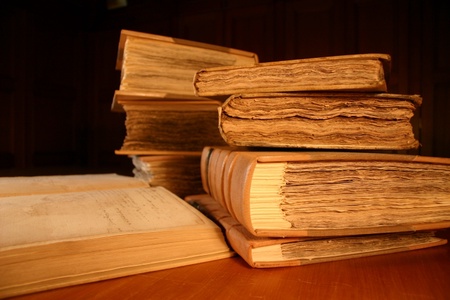The Archive in Aberdeen's Town House is home to a collection of medieval records so significant that they have been recognised by UNESCO, the body of the United Nations responsible for the protection of the world's cultural heritage.
The collection of the city’s earliest council registers is considered to be a national treasure because it is near complete in its coverage of the period 1398-1511 with the exception of a single volume, which has been missing for more than two centuries.
Now researchers at the University of Aberdeen have uncovered fragments of the contents of the missing “third” volume (running from 1414 to 1434) in the form of copied extracts made in the mid-1700s. The find has revealed how the city clashed with King James I when it refused to support a campaign against Highland chiefs.
Dr Jackson Armstrong, a lecturer in history at the University, said the discovery helped piece together a missing part of Scotland’s world class heritage.
“To find any trace of the missing burgh records after more than two centuries was unexpected but to find that these extracts offer us a new insight into Aberdeen’s royal connections in this period is extraordinary,” he said.
“We have found information relating to King James I’s journeys by sea to Aberdeen and Inverness.
“We can also see that in 1428, when the king arrested the highland chiefs at Inverness, he demanded support of men and supply of provisions from Aberdeen. It does not appear that this was forthcoming as other sources show Aberdeen and three other towns were fined by the crown for failing to contribute fully. This new fragment shows that Aberdeen’s officials received a direct complaint from James I about this incident and recorded it in the missing register.
“A year later a further letter from the King was recorded in a council memorandum which seems to relate to selecting burgesses to join the king’s military campaign in 1429 against Alexander Lord of the Isles, suggesting the city was required to make further contributions to royal ambitions in the highlands.”
Dr Armstrong made the discovery after noticing a reference to ‘very curious extracts from the records of the city of Aberdeen, 1398-1658’ in a catalogue of the medieval holdings of ancient universities and colleges produced in 1932.
“The book referred to a manuscript simply numbered 532 which was purchased by the University in 1908. It immediately pricked my curiosity and I began to wonder whether the author, James Man, had access to the register volume before it went astray, so I went to the Library’s Special Collections Centre to investigate.”
Dr Armstrong’s hunch proved to be correct and he found a number of pages copied from the missing volume. Unfortunately deciphering them did not prove to be as straightforward as the copy was made in ‘tortuous handwriting’.
The task of transcribing them fell to Dr Edda Frankot, Editorial Research Fellow on the Aberdeen Burgh Records research project and an expert in medieval and early modern script.
“The handwriting was thoroughly frustrating to read and was probably not intended for anyone to see but Man himself,” she added, “However after many painstaking hours I was able to decipher a significant amount of the content and it proved to be well worth the effort.
“The manuscript as a whole is a collection of notes from several registers, but we can see quite clearly that some sections are a direct translation from the Latin entries in the original ‘volume three’ and others are Man’s own notes rephrasing or summing up the information contained.”
Dr Barry Robertson, of the Aberdeen City Archives, investigated James Man. He said: “It appears that James Man, a graduate of King’s College, was collecting information with a view to writing a book entitled Memoirs of Scottish Affairs, from 1624 to 1651. He published a short section of this projected work along with an introduction in 1741. I doubt he realised at the time that his notes for a book which never came to full fruition would prove so valuable all these years later.”
The team will continue to work on the sections they are yet to decipher and hope that the discovery could pave the way for further insights into the history of Aberdeen and Scotland during this period.
Dr Armstrong added: “Our previous investigations into the burgh records have uncovered tales of shipwrecks, piracy and even royal demands so to have even a small section of material from the missing volume is tremendously valuable.
“Our early analysis of this fragment has already yielded significant information about the relationship between crown and town. It also appears that there is plenty of information about Aberdeen’s connections abroad, with trading towns like Bruges and Middelburg, and even as far afield as the Mediterranean. Two merchants from Genoa, ‘Pylgrime’ and ‘Lazaryne’, who resided in Scotland in the fifteenth century, are recorded. We hope that in time these fragments will yield further clues about Scotland’s medieval history and that, through a similar methodology, other copied sections might yet be found elsewhere.”
Deputy Council Leader, Marie Boulton said: “This is an extremely exciting discovery. It is the next best thing to finding the original. The Burgh records are a fascinating resource for our city and we hope they lead to many more interesting discoveries.”


